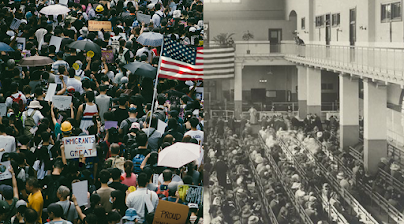Posts
Showing posts from August, 2021
The Civics Test
- Get link
- X
- Other Apps

An immigrant seeking citizenship through naturalization must go through an interview process. Part of this interview is the Civics (history and government) test in which the applicant will be asked 20 questions and must answer them verbally. Out of a list of 128 questions, they must answer 12 out of 20 random questions correctly. Think you can pass the Civics immigration test? Try it out with this practice test! Immigration Practice Civics Test Or you can check out the 2020 version of the test with answers here: 2020 Civics Test with Answers
Immigration: then and now
- Get link
- X
- Other Apps

Resources: Edgenuity U.S. Immigration Timeline - HISTORY Key findings about U.S. immigrants | Pew Research Center Push or Pull Factors: What Drives Central American Migrants to the U.S.? - National Immigration Forum Immigration Data and Statistics | Homeland Security (dhs.gov) Immigration t hen & n ow Mid-1800's through 1924 Present Day Around 1815 most immigrants were Irish and German Push factors: famine in Ireland, political unrest in Germany Pull factors: job opportunities and political/religious freedom 1849 - the Know-Nothing Party was formed as a retaliation towards immigrants entering the nation In 1875 the Supreme Court declared that it’s the responsibility of the federal government to make and enforce immigration laws. In 1882 the Chinese Exclusion Act passed banning Ch...
Citizenship: Do we Take it for Granted?
- Get link
- X
- Other Apps
Citizen (noun) a native or naturalized person who owes allegiance to a government and is entitled to protection from it ( Merriam-Webster's Dictionary) A citizen is a person who, by place of birth, nationality of one or both parents, or naturalization is granted full rights and responsibilities as a member of a nation or political community. (Cornell Law School - Legal Information Institute) someone who has the right to live permanently in a particular country and has the right to the legal and social benefits of that country as well as legal obligations toward it (MacMillan Dictionary) Did you know there is a watch brand named citizen? And a coffee shop? And a band? And numerous apps? While the word citizen has been normalized in our society, many individuals emigrating to the United States understand the term in an entirely different way. Those who a...